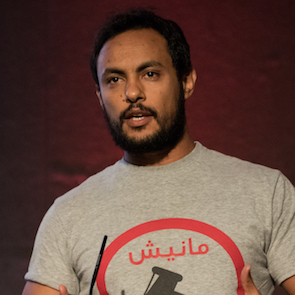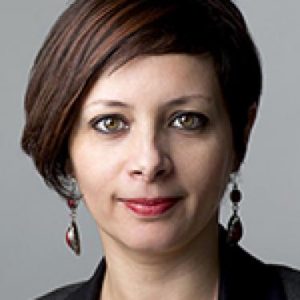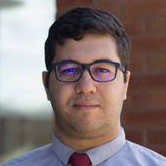On July 25, 2021, amidst rising anger among Tunisian citizens over an escalating pandemic crisis, a deteriorating economy, and public institutions crippled by endless infighting among politicians, Tunisian President Kais Saïed granted himself full executive powers, dismissed the prime minister, “froze” the parliament, and removed immunity for MPs. Saïed assured the Tunisian public, among whom he currently appears to enjoy wide support, that these actions were necessary “to save Tunisia” and in accordance with Article 80 of the constitution. Some Tunisians, however, disagree that his moves are constitutional and warn that democracy is at grave risk.
As Tunisia’s fragile democracy is plunged into uncertainty, please join POMED for an expert briefing on what precipitated the crisis, what has unfolded since July 25, and what may be needed for Tunisia to avoid sliding back into authoritarianism and for its democracy to survive.
Featuring:
- Achref Aouadi
Activist and Founder, IWatch - Amna Guellali
Deputy Regional Director for the Middle East and North Africa, Amnesty International - Mohamed-Dhia Hammami
Independent Researcher and Analyst
Moderator:
- Stephen McInerney
Executive Director, Project on Middle East Democracy
Speaker Bios:

Achref Aouadi is a Tunisian activist and the founder of IWatch, a watchdog anti-corruption organization founded after the 2011 revolution. IWatch works to organize and advocate for increased government transparency and fights against corruption. Mr. Aouadi was chosen to represent the Tunisian civil society at the United Nations Convention Against Corruption and serves as an Ashoka fellow. In 2019, he was awarded POMED’s Leaders for Democracy Award.
 Amna Guellali is Amnesty International’s Deputy Regional Director for the Middle East and North Africa, based in Tunis. Previously, she was the director of the Tunis office of Human Rights Watch and was responsible for research on Tunisia and Algeria in the organization’s Middle East and North Africa division, investigating human rights abuses in both countries. Before joining Human Rights Watch, Dr. Guellali worked as an analyst at the office of the Prosecutor of the International Criminal Court in the Hague and as Senior Researcher at the department of international law at the Asser Institute. She has also served as legal officer at the regional delegation of the International Committee of the Red Cross in Tunis. Dr. Guellali holds a PhD from the European University Institute in Florence. In 2017, she was awarded POMED’s Leaders for Democracy Award.
Amna Guellali is Amnesty International’s Deputy Regional Director for the Middle East and North Africa, based in Tunis. Previously, she was the director of the Tunis office of Human Rights Watch and was responsible for research on Tunisia and Algeria in the organization’s Middle East and North Africa division, investigating human rights abuses in both countries. Before joining Human Rights Watch, Dr. Guellali worked as an analyst at the office of the Prosecutor of the International Criminal Court in the Hague and as Senior Researcher at the department of international law at the Asser Institute. She has also served as legal officer at the regional delegation of the International Committee of the Red Cross in Tunis. Dr. Guellali holds a PhD from the European University Institute in Florence. In 2017, she was awarded POMED’s Leaders for Democracy Award.
 Mohamed-Dhia Hammami is an independent researcher and analyst. After growing up in the suburbs of Tunis under the Ben Ali regime, Mr. Hammami took part in the 2011 revolution and then got involved in public life as a student activist at the University of Tunis and as a parliamentary assistant in the National Constituent Assembly. He subsequently worked as a journalist at Nawaat and as a researcher and a consultant for IWatch, the Truth and Dignity Commission, the Natural Resources Governance Institute, Lawyers Without Borders, and the University of York on corruption and other natural resources-related issues. Mr. Hammami received his BA from Wesleyan University. This fall, he will begin a PhD program at Syracuse University’s Maxwell School of Citizenship and Public Affairs.
Mohamed-Dhia Hammami is an independent researcher and analyst. After growing up in the suburbs of Tunis under the Ben Ali regime, Mr. Hammami took part in the 2011 revolution and then got involved in public life as a student activist at the University of Tunis and as a parliamentary assistant in the National Constituent Assembly. He subsequently worked as a journalist at Nawaat and as a researcher and a consultant for IWatch, the Truth and Dignity Commission, the Natural Resources Governance Institute, Lawyers Without Borders, and the University of York on corruption and other natural resources-related issues. Mr. Hammami received his BA from Wesleyan University. This fall, he will begin a PhD program at Syracuse University’s Maxwell School of Citizenship and Public Affairs.
 Stephen McInerney (moderator) is the executive director of the Project on Middle East Democracy (POMED). Prior to joining POMED in 2007, he had spent six years living, working, and studying in the Middle East and North Africa—two years each in Egypt, Lebanon, and Qatar. He spent two years in a master’s degree program in the Center for Arab and Middle Eastern Studies at the American University of Beirut, one year on a fellowship at the Center for Arab Study Abroad (CASA) at the American University in Cairo, and three years teaching at Cairo American College and the American School of Doha. He received a master’s degree from Stanford University and is fluent in Arabic.
Stephen McInerney (moderator) is the executive director of the Project on Middle East Democracy (POMED). Prior to joining POMED in 2007, he had spent six years living, working, and studying in the Middle East and North Africa—two years each in Egypt, Lebanon, and Qatar. He spent two years in a master’s degree program in the Center for Arab and Middle Eastern Studies at the American University of Beirut, one year on a fellowship at the Center for Arab Study Abroad (CASA) at the American University in Cairo, and three years teaching at Cairo American College and the American School of Doha. He received a master’s degree from Stanford University and is fluent in Arabic.
